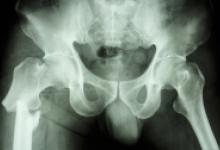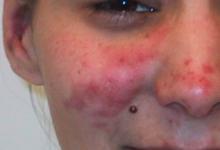Are we doing our best treating seronegative arthritides? Save
Every time a big scientific meeting ends I ask myself a question: how is it going to affect the way I treat my patients? This year the question pertains to management of axial spondyloarthropathies and psoriatic arthritis. Actually, this question has been brewing for several years now, but only now we get more data to form more or less feasible answer. So let’s see what EULAR 2020 has to offer.
The session on psoriatic arthritis management presents us with several interesting abstracts.
OP0050 compares escalation of methotrexate dose to introducing adalimumab. The study concludes that significantly higher responses in musculoskeletal, skin and quality of life measures were seen in patients who added adalimumab. So shall we still start with conventional DMARDs or using biologics early is the way to go? And if biologics are the right way to go, what mechanism of action to go with?
Abstract op0227 compares IL17 inhibitor secukinumab to TNF inhibitor adalimumab in 52-week head to head EXCEED trial. In this trial, 67.4% of secukinumab patients were able to achieve ACR20 as opposed to 61.5% with adalimumab. Better retention of secucinumab at 85.7% vs 76.3% adalimumab was also in favor of this IL17 inhibitor. Finally, secukinumab significantly outperformed in PASI90 (65.4 SEC be 43.2 ADA). So shall we still use TNF inhibitors first? There’s a growing body of evidence that other the mechanisms may be of great use for patients with PsA. Abstract OP0054 points towards great clinical improvement in patients with imaging-confirmed sacroiliitis with 24 week use of IL-23 inhibitor guselkumab.
Abstract op0226 identifies humanized antiIL17a antibody NETAKIMAB (NTK) as an effective treatment for PsA in Ph3 PATERA trial: patients who failed cDMARDs and/or 1TNFi experienced significantly better ACR20/50/70 and PsACR response vs PBO. DAPSA remission 36.08% NTK vs 13.4%PBO is also significant. AEs may be of concern with lymphopenia and neutropenia, hypercholesterolemia and hyperbilirubinemia - all rather mild.
A lot more great data was presented at this EULAR, but isn’t this handful enough to pause and ask yourself: shall we still treat all inflammatory arthritides the same or is now the time to reassess our approach?
Hope this virtual meeting gave you some food for thought.







If you are a health practitioner, you may Login/Register to comment.
Due to the nature of these comment forums, only health practitioners are allowed to comment at this time.